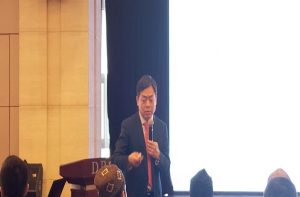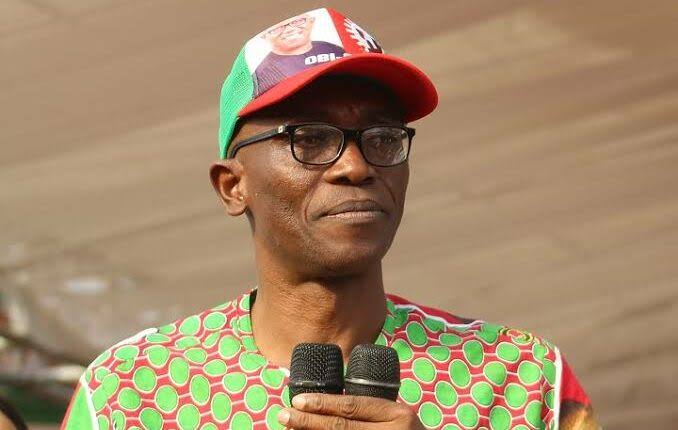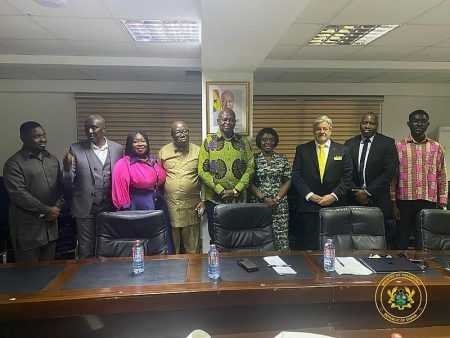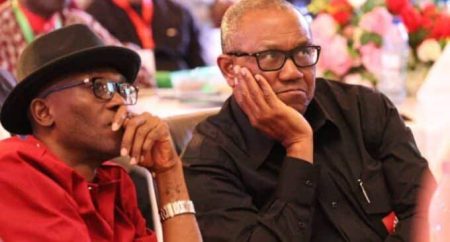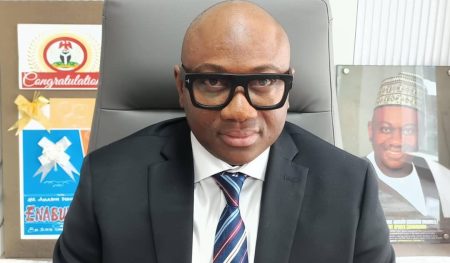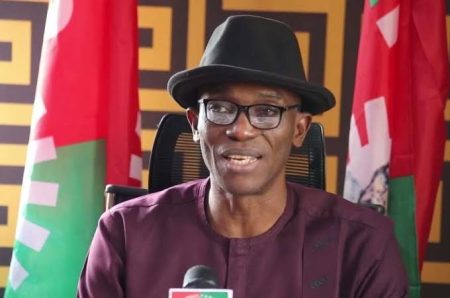The Labour Party celebrated the Supreme Court’s ruling, emphasizing its alignment with their long-held belief that political party matters are internal and should be resolved within the party’s structures. They countered media portrayals of the verdict, asserting that Julius Abure remains their undisputed national chairman. The core of the Supreme Court’s decision, according to the Labour Party, was to reinforce the principle of party autonomy in leadership matters, reiterating that the judiciary’s jurisdiction does not extend to internal party affairs. While the court acknowledged that Abure’s tenure had technically expired based on presented evidence, the Labour Party argued that this observation did not invalidate his chairmanship. They maintained that the court’s decision did not remove Abure from his position and that existing judgments affirming his leadership remain valid and unchallenged.
The Labour Party emphasized the Supreme Court’s upholding of previous court rulings that recognized the authority of the party’s structures to choose its leaders. They stressed that the core of the matter lies in identifying the legitimate “leaders” of the party entitled to make decisions regarding leadership, and according to their interpretation, the party’s constitution vests this power in the National Working Committee (NWC) headed by Abure. The party further clarified that the Supreme Court’s decision did not overturn the Appeal Court judgment that confirmed Abure’s position. They contended that the Apex Court’s ruling simply reinforced the established principle of internal party autonomy and did not directly address or alter Abure’s status as National Chairman, which remained affirmed by previous court decisions.
The Labour Party underscored that the party’s constitution dictates the procedures for convening national meetings, including conventions where leadership is elected. They pointed to Article 14 of the 2024 amended constitution, which grants the National Secretary, in consultation with and upon approval from the National Chairman, the authority to issue notices for such gatherings. The Labour Party maintained that the March 27, 2024 National Convention, which reaffirmed Abure’s leadership, was convened in accordance with these constitutional provisions and that the resulting leadership structure is recognized by the Independent National Electoral Commission (INEC). They dismissed any alternative gatherings or claims challenging Abure’s leadership as unconstitutional and misleading.
The Labour Party thus articulated a multi-pronged argument to support their position: First, they emphasized the principle of internal party autonomy, arguing that the Supreme Court’s decision only reinforces this principle and doesn’t directly address or change Abure’s leadership status. Second, they pointed to existing, unchallenged court judgments that affirmed Abure as the legitimate National Chairman. Third, they emphasized the constitutional process for convening party meetings and selecting leaders, arguing that the convention reaffirming Abure was conducted in accordance with the party’s constitution and recognized by INEC.
The Labour Party called on its members to respect the Supreme Court’s decision and adhere to internal party mechanisms for resolving disputes, discouraging recourse to the courts. They reiterated their stance that internal party structures are equipped to handle such matters effectively. Their interpretation of the Supreme Court’s ruling was that it reinforced the existing status quo, with Abure continuing as the legitimate National Chairman, supported by valid court rulings and the party’s constitutional framework. They framed the court’s acknowledgment of Abure’s expired tenure as a procedural point that did not affect his established leadership, which they insisted was determined through proper channels within the party.
The Labour Party’s response to the Supreme Court’s ruling revolves around several key arguments. First, they emphasized the principle of party autonomy, interpreting the court’s decision as reaffirming the party’s right to manage its internal affairs. Second, they highlighted existing court judgments that affirmed Abure’s leadership, arguing that these remain valid and unaffected by the Supreme Court’s ruling. Third, they emphasized the adherence to constitutional procedures in the convention that reaffirmed Abure’s leadership, emphasizing INEC’s recognition. Finally, they urged party members to avoid externalizing internal disputes and prioritize the use of internal mechanisms for resolution. This multifaceted approach aims to solidify Abure’s position as National Chairman and maintain the legitimacy of the current leadership structure.


